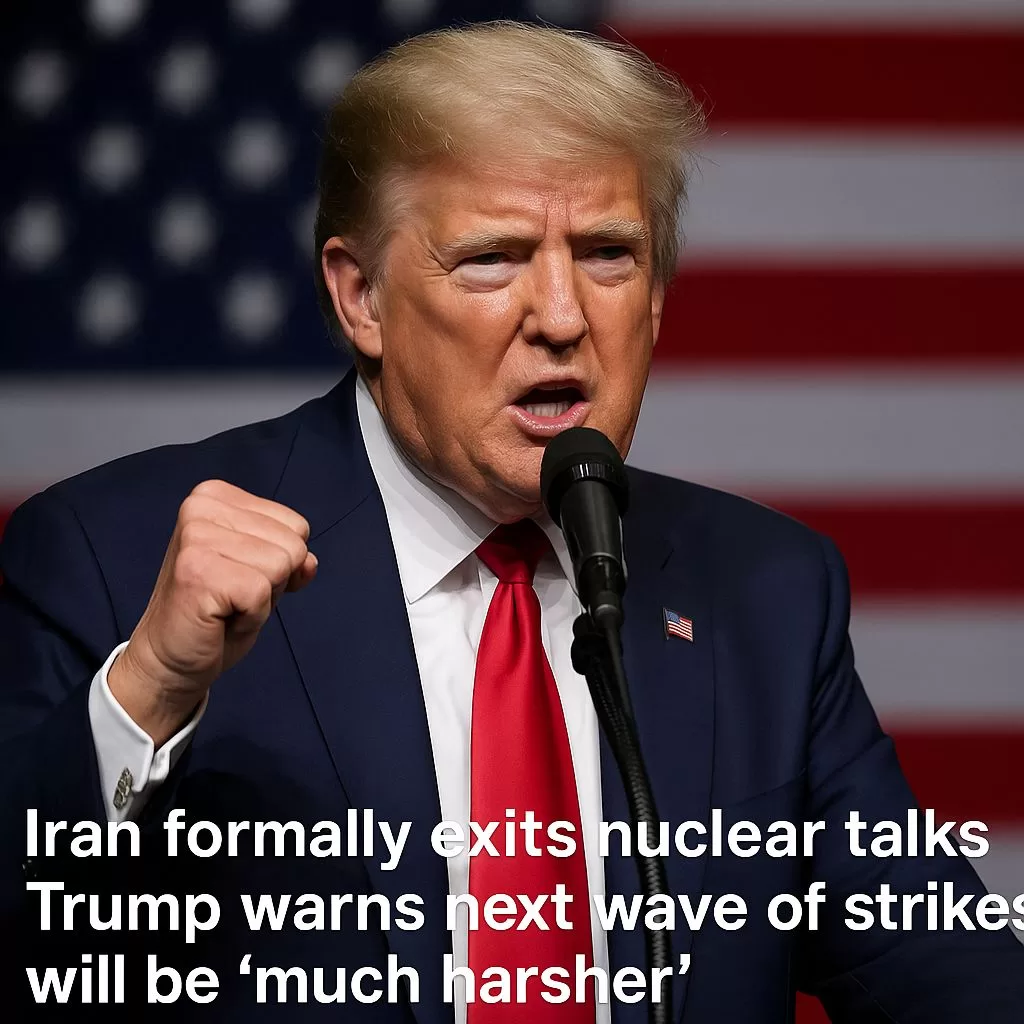
TEHRAN, June 13 (WSH) — Tensions in the Middle East reached a dangerous new level as Iran officially announced its withdrawal from nuclear negotiations with the United States. The move came just hours after a massive Israeli airstrike on multiple Iranian targets, including residential areas in Tehran and key military and nuclear installations.
According to Iranian state media, the Israeli assault resulted in 78 deaths and over 300 injuries. The attack, described as one of the largest in recent memory, involved more than 200 Israeli aircraft and over 300 precision-guided munitions. The Iranian Civil Aviation Authority confirmed the suspension of all domestic and international flights, while the Ministry of Information and Communications imposed temporary internet restrictions nationwide due to “current national security concerns.”
U.S. President Donald Trump responded with an ominous warning. In a social media post on June 13, he stated that the next round of strikes on Iran would be “far more brutal,” urging Tehran to reach an agreement before facing “complete destruction.” Trump emphasized that both the U.S. and Israel possess the world’s most advanced military weapons and declared Israel is prepared to use them “with full force.”
Earlier in the day, Israel claimed responsibility for the killing of three top Iranian military commanders, including Armed Forces Chief of Staff Mohammad Bagheri and Revolutionary Guard Commander Hossein Salami. The Israeli Defense Forces (IDF) said the operation was jointly executed with the Mossad and supported by intelligence and sabotage networks reportedly prepositioned inside Iran.
Iran’s Supreme Military Council issued an urgent statement condemning the attacks as “acts of aggression,” vowing immediate and proportional retaliation. The sixth round of nuclear negotiations, originally scheduled to resume in Oman on June 15, has now been indefinitely canceled.
Analysts warn that the region may be on the verge of a broader conflict. With Iran’s withdrawal from diplomacy and Israel escalating its military pressure, the potential for a drawn-out regional war involving the U.S. has grown significantly.




